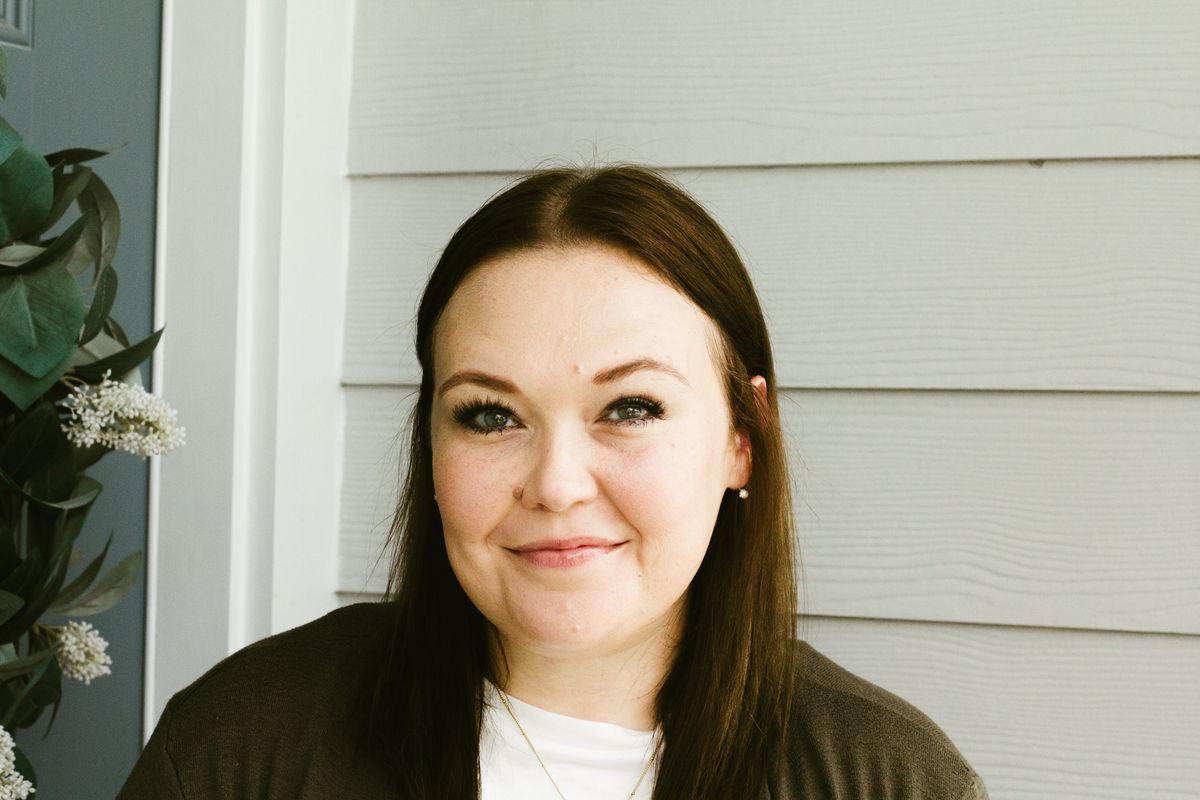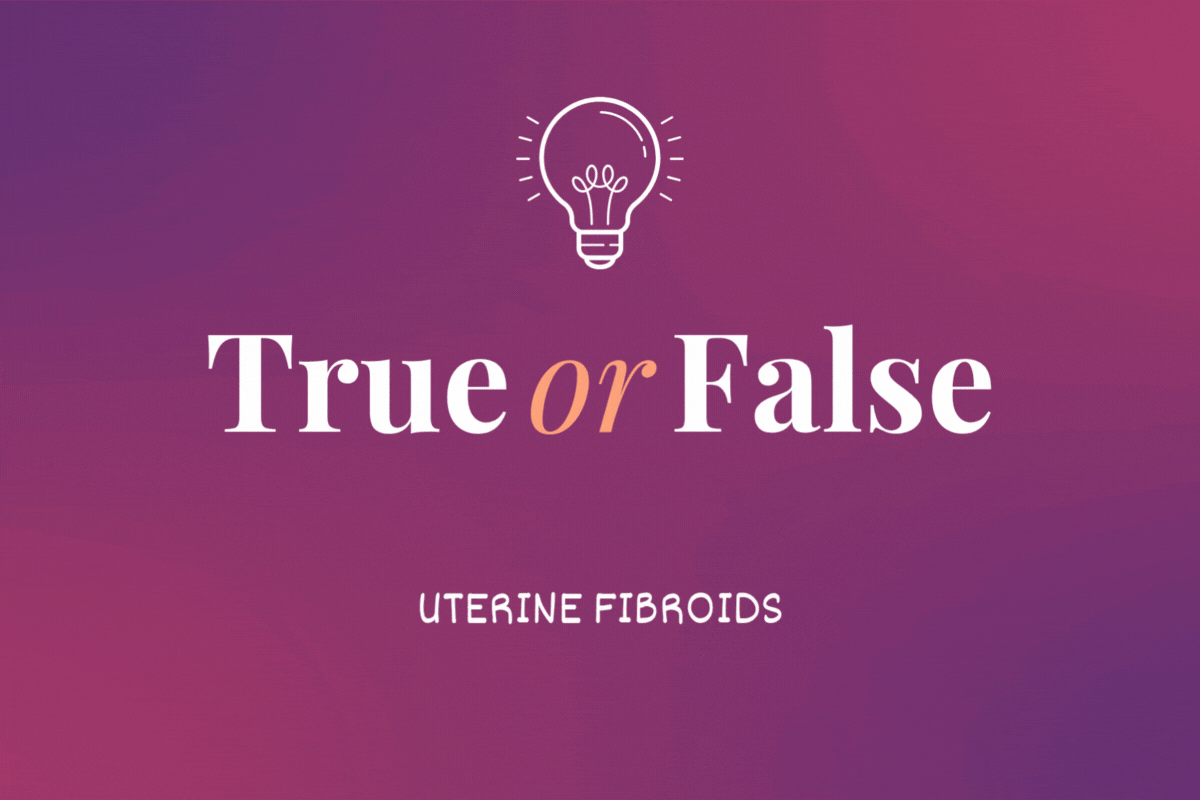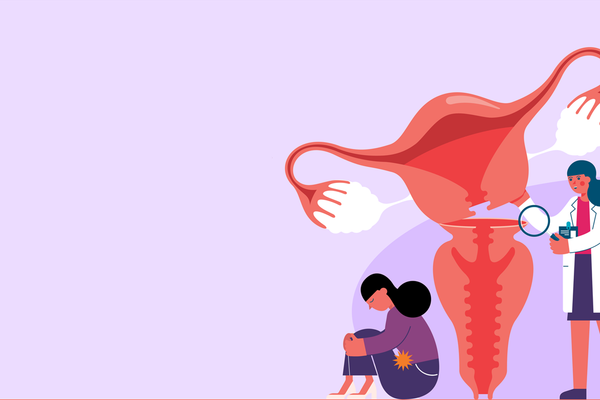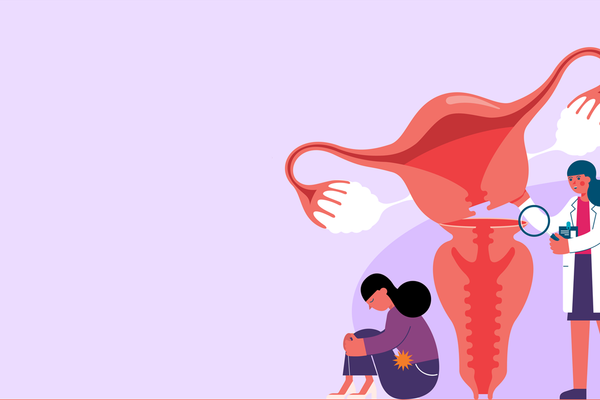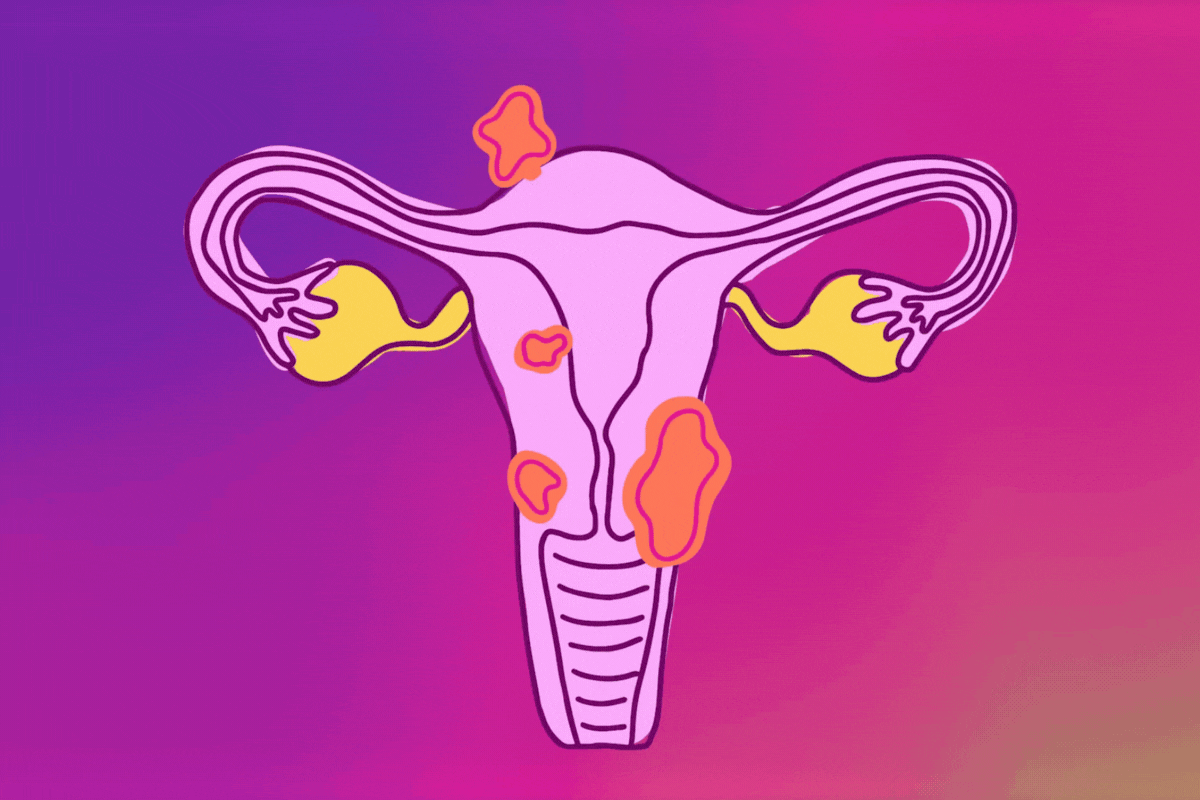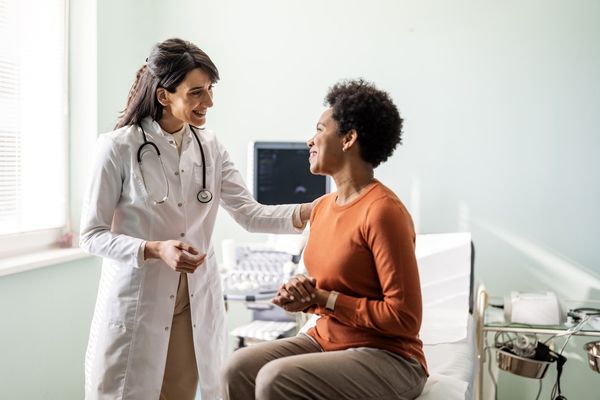As told to Nicole Audrey Spector
From the very beginning, my periods were abnormally long and heavy and often debilitating. As a teenager, I would sometimes bleed through my clothing — even when wearing a pad and/or tampon. In ninth grade, I bonded over embarrassment with a new friend who loaned me her jacket to tie around my waist after I bled through my clothes.
After high school, my periods remained long and painful. To this day, I have heavy bleeding, as well as severe cramping and back aches. I am also prone to anemia. For so many years, these symptoms felt like an unlucky but normal part of being a woman. I wasn’t concerned because my healthcare provider and OB-GYN weren’t concerned.
When I got married and converted to Islam — an independent choice I made nearly a year after being married to a Sunni Muslim, inspired by watching him practice his faith — my periods became even more of a problem.
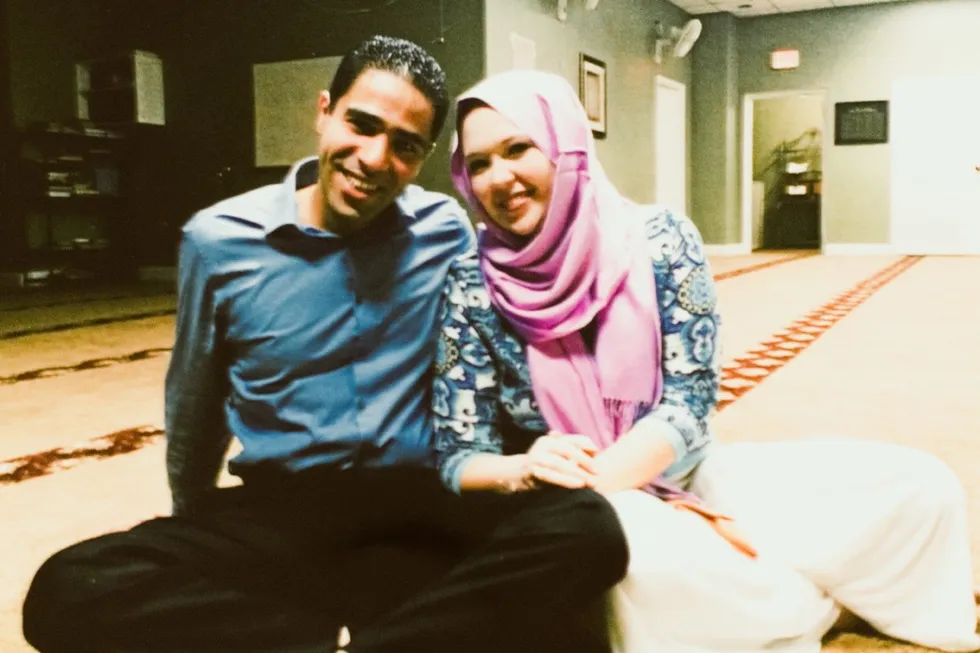
In our faith, there are some restrictions regarding prayer and intimacy when a woman is menstruating. These rules were designed as a relief for women, acknowledging that periods can be physically and emotionally taxing. But some interpretations make these rules sound negative, like a punishment or an impurity. They are often misunderstood, even within the Muslim community.
There are five obligatory daily prayers, but when we’re on our periods, we’re unable to pray, have sex or take part in any fasting rituals (like the ones during the month of Ramadan). Having a heavy period that lasts a week or more and may include some spotting after is a huge disruptor. It made it difficult to get into a prayer routine and left me feeling disconnected from God and my husband.
And then there’s just the day-to-day problems of living with horrible periods. I always keep extra clothing with me and most of my wardrobe is black so that if I bleed through, it won’t be as noticeable.
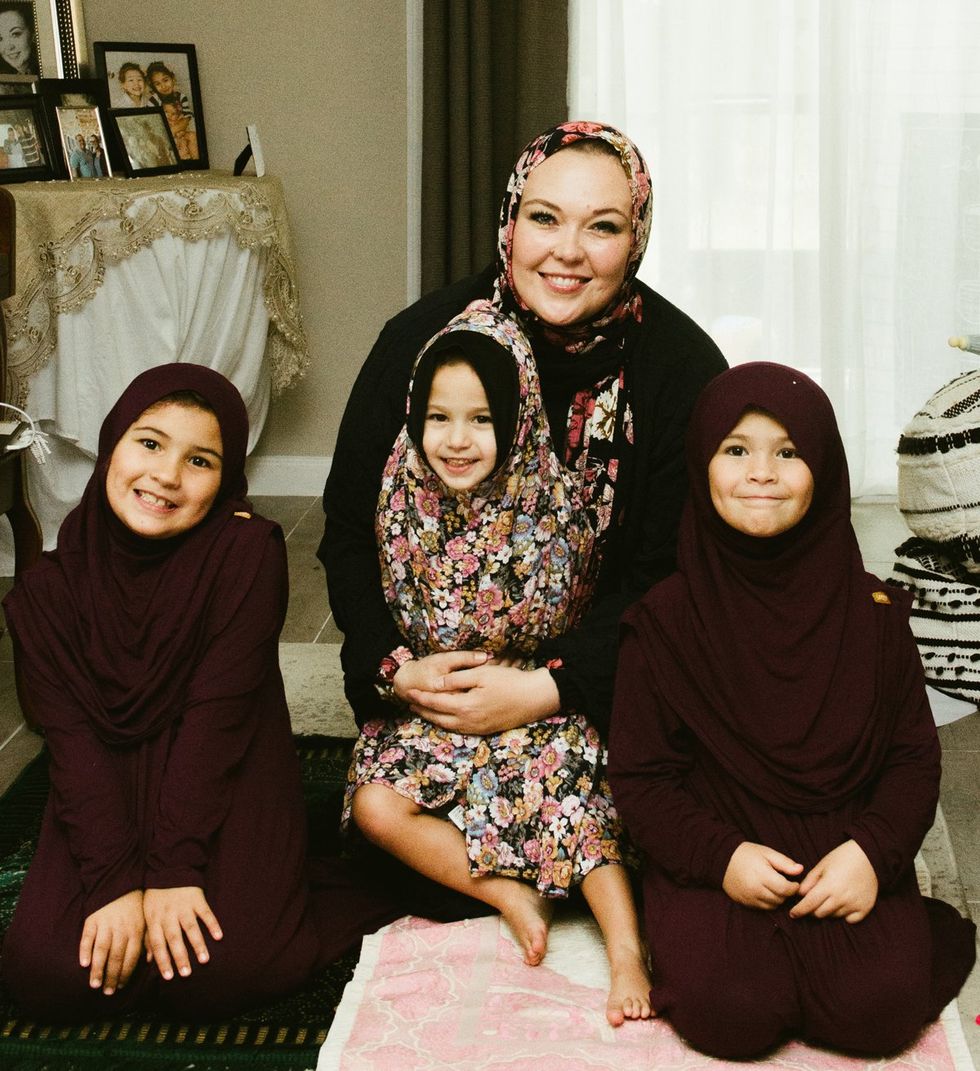
Long and heavy periods are also challenging to live with as a mother of three young girls who want to go swimming and play outdoors. I have to balance their needs with my own and plan for a lot of bathroom breaks. For the most part, I try to do everything I do when I’m not on my period, but in a reduced capacity, and with lots of planning. The Prophet Muhammad (PBUH) recommended taking afternoon naps, so that’s a small blessing I try to work into my schedule.
I lived with these agonizing periods for years without knowing what was causing them. It wasn’t until I was pregnant with my first child that I was diagnosed with uterine fibroids — the source of my pain and discomfort. Unfortunately, my OB-GYN did not discuss how the fibroids had been affecting me, my marriage or my quality of life. She was only worried about how they might impact my pregnancy.
Thankfully, I was able to successfully carry my pregnancy to full term, though I did develop deep vein thrombosis (DVT) during pregnancy.
After I gave birth I was told my uterine fibroids were too small for surgical removal. And with a family history of blood clotting and pulmonary embolism along with my own history of DVT, I wasn’t a candidate for the only other available treatment I was offered — hormonal birth control — because hormone therapy can raise the risk of clotting.
I have been treated by several OB-GYNs in different locations across the United States over the last 20 years. I’ve always gotten the same message: Uterine fibroids and their terrible effect on my menstrual cycle will always be part of my life.
Since there is no way for me to avoid abnormally intense periods, I find meaningful ways to connect with God outside of the obligatory prayers. These alternative connections increase my trust in God’s plans and understanding of His mercy. I have also explored non-sexual ways to enjoy intimacy with my husband. That part has actually been fun! Because we can only cuddle and make out, we feel like newlyweds, freshly in love again every few weeks.
Many people in our faith believe you shouldn’t read or recite the Quran while menstruating based on a translation of verse 56:79. While the verse is often translated as “which none but the pure may touch,” another translation is “which none shall grasp but the pure [of heart].” To me, this means if your heart is impure, you will not understand the information or be able to weave the messages of the Quran into your life with sincerity. So, if I come with a pure heart, I can grasp (as in comprehend) the spiritual text.
Once I discovered this more open interpretation, I began reading Quran when menstruating. I still do. It gives me the opportunity to maintain my relationship with God’s word each day. For those who take the rule about not touching the Quran while on their period literally, I encourage them to use audiobooks so they can access God’s message without having to hold the Quran in their hands. Spotify and YouTube have beautiful recitations too.
In general, I feel that society needs to have more candid conversations about periods, but perhaps more urgently in the Muslim community, where stigmas and misunderstandings about periods are common.
In my state, Florida, educators will soon be banned from talking to students about periods until they reach middle school, so it’s extra important that parents feel comfortable having these discussions at home.
Despite the challenges, I am happy to say that progress is being made. During this past Ramadan, I participated in the Muslim Women’s Organization Women’s Health Matters series on “positive periods.” We were able to connect and talk about menstruation in a way that encouraged peace and healthy coping.
I’m excited to see more of these honest and helpful conversations taking place, and I will continue to participate in them with the Muslim women in my community. I hope others will join us and find the support I was looking for years ago.
This resource was created with support from Myovant Sciences GmbH and Pfizer.
Have a Real Women, Real Stories of your own you want to share? Let us know.
Our Real Women, Real Stories are the authentic experiences of real-life women. The views, opinions and experiences shared in these stories are not endorsed by HealthyWomen and do not necessarily reflect the official policy or position of HealthyWomen.

